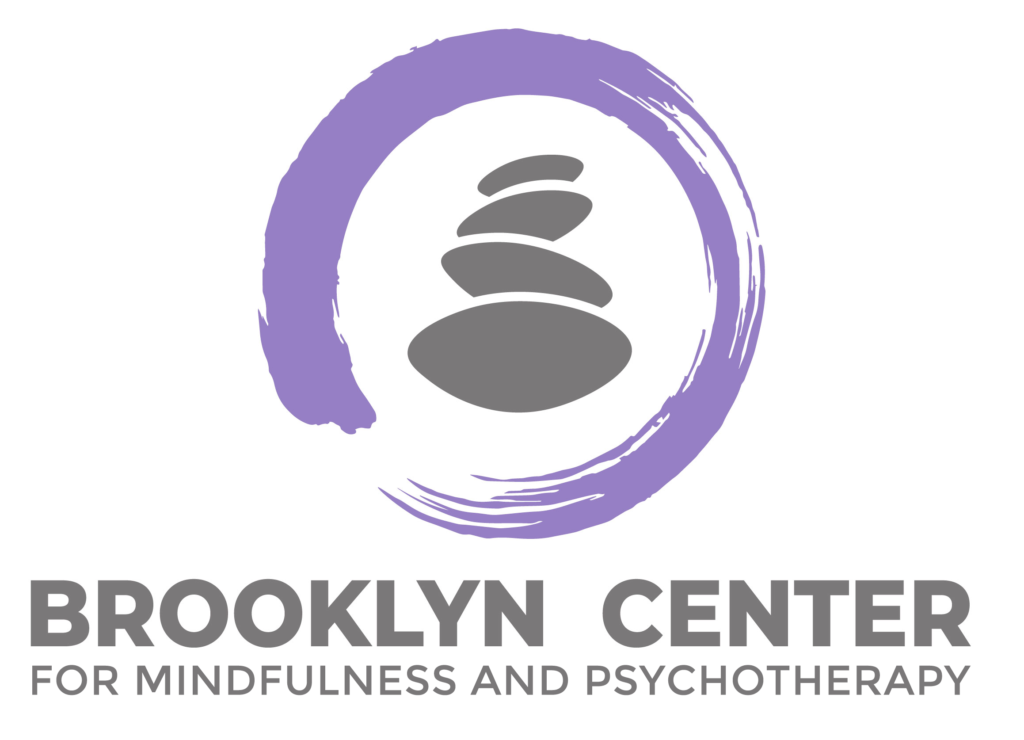Welcome to our blog series on “Understanding Cognitive-Behavioral Therapy: Tools for Positive Change” in the bustling city of New York! This insightful series will explore the transformative power of Cognitive-Behavioral Therapy (CBT) and how it can help individuals navigate their lives with increased self-awareness, resilience, and positive change. Join us as we delve into the core principles of CBT, examine its practical tools, and shed light on its effectiveness in addressing a wide range of mental health challenges. Whether you’re curious about therapy or seeking personal growth, this series will equip you with valuable insights and strategies to cultivate a happier and healthier mindset in the vibrant backdrop of the Big Apple.
What is Cognitive-Behavioral Therapy?
Cognitive-Behavioral Therapy (CBT) is a form of psychotherapy that focuses on the connection between a person’s thoughts, feelings, and behaviors. It is a highly effective treatment for various mental health issues, including anxiety, depression, and post-traumatic stress disorder. During CBT sessions, therapists work with patients to identify negative thought patterns and replace them with more positive and realistic ones. This helps patients to develop coping strategies for managing difficult emotions and behaviors in their daily lives. In New York City, many qualified therapists specialize in CBT and can provide excellent care for those seeking this type of therapy.
Types of Cognitive-Behavioral Therapy
You can find various cognitive-behavioral therapy (CBT) approaches in New York. CBT is a psychotherapeutic approach that focuses on identifying and modifying patterns of thinking and behavior that contribute to mental health issues. Here are some common types of CBT practiced in New York:
- Traditional Cognitive-Behavioral Therapy (CBT): This standard form of CBT focuses on identifying and challenging negative thoughts and beliefs that contribute to distressing emotions and problematic behaviors. It aims to replace unhelpful thoughts and behaviors with more adaptive ones.
- Cognitive Restructuring: This approach explicitly targets cognitive distortions, which are inaccurate or irrational thoughts contributing to emotional distress. Cognitive restructuring involves identifying and replacing these distortions with more realistic and helpful reviews.
- Dialectical Behavior Therapy (DBT): DBT is a type of CBT that integrates mindfulness techniques with cognitive-behavioral strategies. It was initially developed to treat borderline personality disorder but has also proven effective for other conditions. DBT emphasizes acceptance of difficult emotions while teaching skills to regulate emotions, manage distress, and improve interpersonal relationships.
- Acceptance and Commitment Therapy (ACT): ACT combines cognitive and behavioral techniques with mindfulness and acceptance strategies. It focuses on helping individuals accept their thoughts and feelings while committing to actions aligned with their values. ACT aims to reduce the impact of negative thoughts and promote psychological flexibility.
- Schema Therapy: Schema Therapy is an extended form of CBT that addresses deeply ingrained, maladaptive patterns of thinking and behavior called “schemas.” It explores early life experiences and core beliefs to understand how they influence current functioning. Schema Therapy aims to help individuals develop healthier schemas and change longstanding patterns.
- Trauma-Focused Cognitive-Behavioral Therapy (TF-CBT): TF-CBT addresses trauma-related symptoms in children and adolescents. It combines cognitive-behavioral techniques with trauma-focused interventions to help individuals process traumatic experiences, manage distressing emotions, and improve coping skills.
Benefits of Cognitive-Behavioral Therapy
Cognitive-Behavioral Therapy (CBT) is a widely recognized and effective form of psychotherapy that can benefit individuals seeking mental health treatment in New York or anywhere else. Here are some of the critical benefits of CBT:
- Evidence-based approach: CBT is supported by substantial scientific research and has been extensively studied for various mental health conditions. It effectively treats multiple disorders, including depression, anxiety, post-traumatic stress disorder (PTSD), obsessive-compulsive disorder (OCD), eating disorders, and substance abuse.
- Focus on the present: CBT emphasizes understanding and addressing the thoughts, emotions, and behaviors currently causing distress or difficulties. It helps individuals develop an awareness of their negative thought patterns and offers practical strategies to challenge and change them, promoting problem-solving and practical coping skills.
- Collaboration and active involvement: CBT is a collaborative therapy that encourages individuals to participate in their treatment actively. Therapists work with clients to set goals, identify problem areas, and develop tailored treatment plans. This active involvement empowers individuals to take an active role in their recovery.
- Skill-building: CBT equips individuals with practical skills and techniques they can apply daily. These skills include cognitive restructuring (challenging and replacing negative thoughts), behavior activation (engaging in positive activities), relaxation and stress management techniques, problem-solving skills, and social skills training. These tools help individuals build resilience and make lasting changes in their lives.
- Short-term and time-limited: CBT is typically a shorter therapy than other therapeutic approaches. It is often structured as a time-limited treatment with a specific number of sessions, which can benefit individuals seeking efficient and focused treatment options.
- Transferable skills: The skills learned in CBT can be applied across various areas of life, not just in therapy sessions. Individuals can use the techniques they acquire to manage stress, improve relationships, enhance communication, cope with challenges, and maintain their mental well-being long after therapy.
- Holistic approach: While CBT primarily focuses on thoughts, emotions, and behaviors, it also recognizes the influence of other factors on mental health. CBT therapists may address factors such as interpersonal relationships, environmental stressors, and physiological symptoms contributing to an individual’s difficulties, providing a comprehensive approach to treatment.
- Availability in New York: New York is home to a vibrant mental health community, with numerous qualified therapists and mental health centers offering CBT. The city has diverse treatment options, making it easier for individuals to find CBT providers who specialize in their specific areas of concern.
What Can Cognitive-Behavioral Therapy Help With?
Cognitive-behavioral therapy (CBT) is a widely used form of psychotherapy that can help individuals struggling with various mental health issues. In New York, CBT is a popular and effective treatment for anxiety disorders, depression, post-traumatic stress disorder (PTSD), obsessive-compulsive disorder (OCD), and eating disorders.

CBT is based on the idea that our thoughts, emotions, and behaviors are interconnected and that negative or distorted thinking patterns can contribute to mental health problems. Through CBT, individuals work with a therapist to identify and challenge these negative thought patterns and develop more positive coping strategies. This type of therapy typically involves weekly sessions over several months and can be adapted to meet the specific needs of each individual. With its evidence-based approach and proven effectiveness, CBT has become one of the most widely used forms of psychotherapy in New York and worldwide.
How Does Cognitive-Behavioral Therapy Work?
Cognitive-behavioral therapy (CBT) is a type of psychotherapy that focuses on changing negative thought patterns and behaviors. This therapy is based on the idea that our thoughts, feelings, and behaviors are interconnected and that we can influence others by changing one of these aspects. CBT aims to help individuals identify negative beliefs and thinking patterns that may be causing emotional distress or behavioral problems. Once identified, these patterns are challenged and replaced with more positive and helpful ways of thinking.
During a CBT session in New York, a therapist will work with the individual to set goals for treatment and develop strategies to achieve those goals. This may include identifying triggers for negative thoughts or behaviors, practicing relaxation techniques, or learning new coping skills. CBT is typically a short-term therapy that can be completed in as little as 8-20 sessions, although the number of sessions required may vary depending on the individual’s needs and progress. CBT is an effective therapy for individuals struggling with anxiety disorders, depression, PTSD, eating disorders, and other mental health concerns.

Techniques Used in Cognitive-Behavioral Therapy
Cognitive-behavioral therapy (CBT) is a type of psychotherapy that has become increasingly popular in New York and worldwide. It is a short-term, evidence-based treatment that focuses on changing negative thinking and behavior patterns. CBT is based on the idea that our thoughts, feelings, and behaviors are interconnected and that we can positively impact others by changing one aspect of this cycle.
One technique used in CBT is cognitive restructuring, which involves identifying and challenging negative or irrational thoughts and replacing them with more positive and realistic ones. Another technique is exposure therapy, which involves gradually exposing individuals to situations or stimuli that trigger their anxiety or fear in a safe and controlled environment. This allows individuals to learn how to cope with these triggers and reduce their tension over time. Other techniques used in CBT include relaxation training, behavioral activation, and problem-solving skills training. CBT provides individuals with practical tools and strategies to manage their emotions, improve their mood, and live more fulfilling lives.
Conclusion
https://brooklynmindful.com/couples-and-family-therapy-new-york/In conclusion, exploring the world of Cognitive-Behavioral Therapy (CBT) has been an enlightening journey toward understanding the power of our thoughts, emotions, and behaviors in shaping our overall well-being. Brooklyn Mindful in New York provides a welcoming and supportive environment for individuals seeking positive change through CBT. With their team of experienced therapists and a range of practical tools, such as cognitive restructuring and behavior modification, they empower clients to challenge negative patterns, develop healthier coping mechanisms, and ultimately transform their lives. If you’re ready to embark on a path of self-discovery and personal growth, don’t hesitate to contact Brooklyn Mindful and take that vital step towards a more fulfilling and balanced existence.




